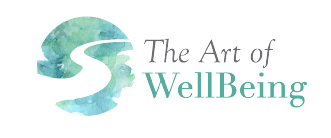Sacred Witness
Recently I asked a group of coaches-in-training how well they tolerate the discomfort of those they coach. One said, “I don’t! My immediate thought is to say something to make them feel better.” Another exclaimed, “Not well! Not well at all!!” These honest and well-meaning coaches admitted that their first impulse when confronted with emotional pain and distress is to speak words of easy comfort or to seek a quick solution.
Edwin Friedman, a family therapist and leadership consultant, emphasized the importance of not rescuing or trying to fix people's pain or discomfort. Instead, he advocated for the concept of “non-anxious presence,” where leaders learn to tolerate the discomfort of others without attempting to alleviate it immediately. Friedman believed that by staying calm and present, leaders could create a space where others could explore their own feelings and find their own solutions. He taught that the more a leader or helping professional can tolerate the pain of another, the more that person’s ability to tolerate their own pain expands. This approach requires individuals to resist the urge to rescue or control others and to trust in their ability to navigate their own challenges.
Author and speaker Carolyn Myss invites each of us to find a supportive friend or professional who can hold space for both our pain and our joy. "We all need a sacred witness in life, a person who can listen without judgment while knowing the right questions to ask that continually illuminate our path." We each need a sacred witness, and we are each called to be sacred witnesses for others.
A sacred witness is not merely a passive observer but a compassionate listener who holds space for our thoughts, fears, and aspirations without prejudice or condemnation. They offer a sanctuary where our innermost truths can unfurl, free from the shackles of societal expectations or self-doubt. In their presence, we feel heard, seen, and understood in a way that transcends words.
What sets a sacred witness apart is their ability to pose insightful questions that stir the depths of our soul, nudging us towards self-discovery and growth. Through their gentle inquiry, they shine a light on the shadows within us, encouraging us to confront our fears and embrace our authentic selves. With each probing question, they unveil new perspectives and possibilities, guiding us along a winding path of self-awareness.
But perhaps, the most profound gift of a sacred witness is their unwavering belief in our inherent worth and potential. In moments of doubt or despair, they serve as a reminder of our resilience and capacity for transformation. Their faith in our journey becomes a source of strength, empowering us to navigate life's challenges with courage and conviction.
Finding a sacred witness is not always easy, yet their presence can make a world of difference in our lives. Whether it's a trusted friend, mentor, therapist, or coach, cultivating relationships with individuals who embody the qualities of a sacred witness can profoundly enrich our personal growth journey.
Moreover, as we recognize the importance of being a sacred witness for others, we contribute to a culture of empathy and understanding. By offering our presence, active listening, and thoughtful questions, we create safe spaces where others feel valued, accepted, and supported in their quest for self-discovery.
In essence, Caroline Myss's words remind us that to "hold space" for another person or group of people means to create a supportive, non-judgmental, and empathetic environment for them to express themselves, share their thoughts, feelings, and experiences, and to simply be who they are. Holding space involves actively listening without interrupting or imposing one's own opinions, offering unconditional acceptance, and providing emotional support and understanding. It's about being fully present and attentive to the needs of others, allowing them to feel heard, validated, and respected. Holding space can be particularly important during times of struggle, grief, or vulnerability, as it helps individuals or groups feel safe and supported as they navigate their challenging emotions and experiences. Through the gentle art of listening and questioning, a sacred witness has the power to illuminate our path, guiding us toward deeper self-understanding and fulfillment.
Find a sacred witness. Be a sacred witness. Help create the world you want to live in.
Walking with you,
Vicki
